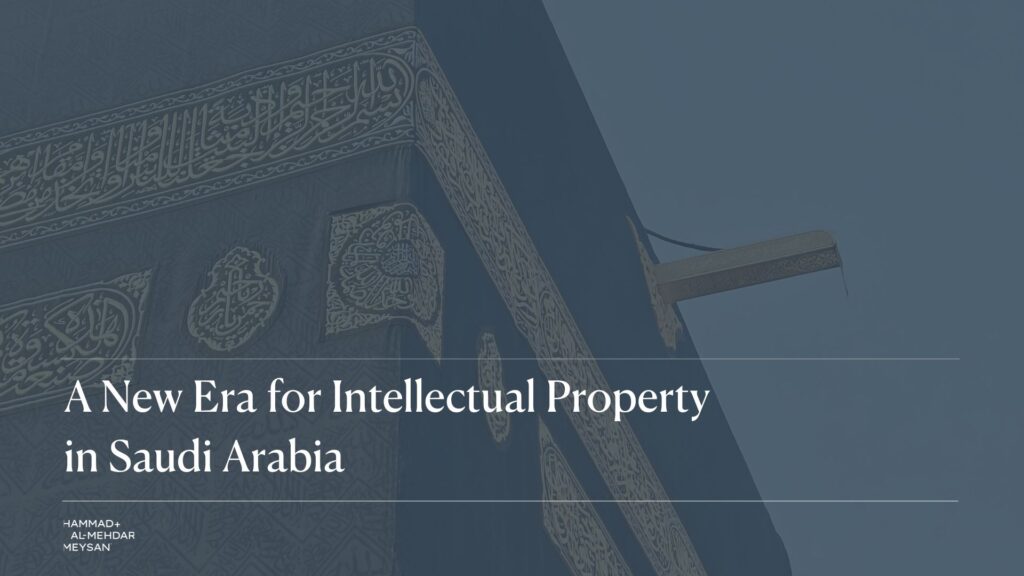
Saudi Arabia’s intellectual property framework is entering a transformative phase with the issuance of the Copyright Law – 1447 under Royal Decree No. M/169. Published in Umm Al-Qura Gazette Issue 5144 on 14 Sha’ban 1447 (13 February 2026), the law represents one of the most comprehensive modernisations of copyright protection in the Kingdom’s history. Following a 180-day transition period, the law will take effect on 13 August 2026, replacing the previous Copyright Law issued under Royal Decree M/41 (1424 A.H.). For creators, businesses, technology platforms, publishers, and institutions operating in the Kingdom, this marks a decisive shift toward stronger protection, clearer compliance obligations, and alignment with international intellectual property standards.
A Broader and More Modern Scope of Protection
At the core of the new regime is an expansive definition of “Work.” Protection extends to any innovative literary, artistic, or scientific creation, regardless of medium or purpose. The framework reflects the realities of digital production, artificial intelligence development, and cross-border distribution, ensuring that intellectual property law evolves alongside technological progress.
The law applies to works by Saudi authors and residents, works first published in the Kingdom (or published abroad and subsequently within 30 days domestically), audiovisual works produced by residents, architectural works constructed in Saudi Arabia, and works protected under international treaties ratified by the Kingdom. This breadth reinforces Saudi Arabia’s commitment to innovation, cultural development, and the digital economy.
Defined Protection and Clear Exclusions
The legislation clarifies what qualifies for protection while preserving public access to information and ideas. Protected works include written and oral works, dramatic and audiovisual productions, visual arts, musical compositions, photographs, architectural and engineering designs, computer programs, innovative databases, and derivative works. At the same time, the law expressly excludes ideas, principles, methods, official regulations, judicial rulings, and daily news reports from protection. These exclusions ensure that copyright safeguards creative expression without restricting public knowledge or governmental transparency.
Strengthened Moral and Economic Rights
The 1447 law reinforces perpetual moral rights, including the right of attribution, the right to first publication, and the right to object to distortion or false attribution. These rights are non-transferable and continue even if economic rights are assigned or licensed.
Economic rights are comprehensively modernised. Authors retain exclusive control over reproduction, translation, adaptation, distribution, public performance, broadcasting, digital transmission, and licensing. Computer programs are governed by accompanying licence agreements that reflect international software practices and strengthen commercial certainty for technology businesses.
Duration of Protection Aligned with Global Standards
The law adopts internationally recognised protection periods. Financial rights are protected for the author’s lifetime plus 50 years. Audiovisual works, performers, and sound recording producers receive 50-year protection terms. Broadcasting organisations are protected for 20 years, while applied arts are protected for 25 years. Upon expiry, works enter the public domain, supporting cultural circulation and long-term access.
Expanded Exceptions Supporting Innovation’
A notable feature of the new regime is the clarity it provides on permitted uses without authorisation. The law recognises practical realities in education, research, broadcasting, and digital innovation.
Permitted uses include personal copying of lawfully obtained works, educational and research usage with attribution, short quotations, judicial and administrative use, media reporting, archival preservation, and temporary broadcaster recordings. Importantly, the law expressly allows text and data mining for artificial intelligence development, positioning Saudi Arabia as forward-looking in balancing technological advancement with intellectual property protection. The framework also facilitates the production of accessible formats for persons with disabilities, enabling inclusivity while maintaining safeguards for rights holders.
Compulsory Licensing and Public Interest Mechanisms
In defined circumstances, the law permits compulsory licensing, subject to regulatory controls and fair compensation. This mechanism ensures that public interest considerations can be balanced with private rights, particularly in areas of educational or societal need.
Stronger Enforcement and Commercial Implications
The enforcement structure under the 1447 law is materially strengthened. Authorised officials may conduct inspections, seize infringing materials, and temporarily close establishments.
Criminal violations, including unauthorised commercial exploitation or circumvention of technical protection measures, may result in imprisonment for up to one year, a fine of up to SAR 1 million, or both. Repeat offences attract double penalties.
Civil remedies include seizure, cessation orders, compensation, and disclosure of supply chains. A structured settlement mechanism allows certain violations to be resolved before referral to Public Prosecution, subject to regulatory conditions.
For businesses, enforcement risk is no longer theoretical. Intellectual property compliance must now be embedded within governance, contracting, and operational oversight.
Preparing for Implementation
The law mandates the issuance of implementing regulations within 180 days and will take full effect on 13 August 2026. Upon enforcement, the previous copyright framework will be repealed.
Organisations should use the transition period to audit existing intellectual property portfolios, review licensing and contributor agreements, update contractual protections and indemnities, implement internal monitoring systems, and train operational and commercial teams. Early preparation will reduce disruption and strengthen market credibility.
The Copyright Law – 1447 marks a decisive evolution in Saudi Arabia’s intellectual property ecosystem. By aligning with international standards, addressing digital and AI-driven realities, and strengthening enforcement, the Kingdom reinforces its commitment to a transparent, innovation-driven economy. For creators, publishers, software developers, media platforms, and commercial enterprises, intellectual property protection in Saudi Arabia has entered a new era, one that combines stronger safeguards with structured compliance expectations and meaningful commercial opportunity.









